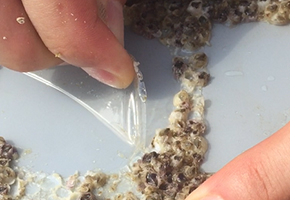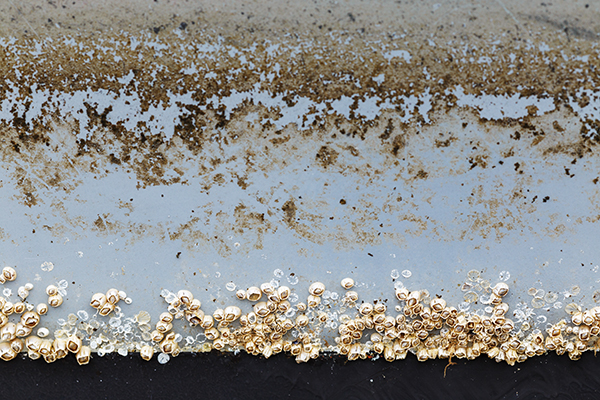

Underwater sensors are widely used in oceanography. One common sensor is the acoustic Doppler current profiler (ADCP). These sensors can help detect the bottom of the ocean, measure discharge, and measure waves and turbulence. ADCP’s have played a critical role in our understanding of the ocean’s circulation.
However, these sensors can be rendered ineffective when they encounter biofouling.
Biofouling happens when underwater organisms such as algae, barnacles, or mollusks attach themselves on devices and surfaces. This accumulation of microorganisms is called fouling, and can damage instruments, create measurement bias, create operational failure, and can even transfer invasive species between bodies of water.
Biofouling is a challenging issue for both operators and the environment. With these challenges in mind, MARINGLIDE™ was developed to reduce biofouling and minimize the potential damages that it causes.
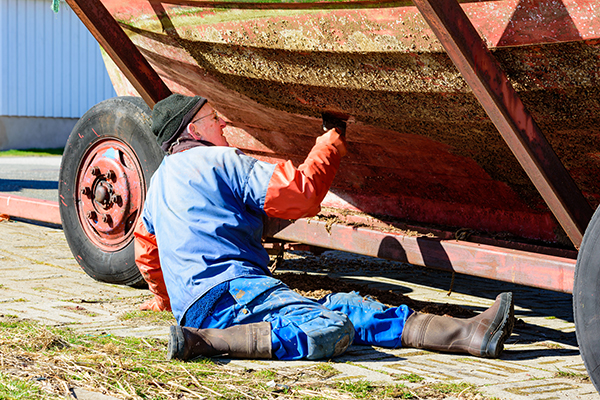

When MARINGLIDE™ was being developed, the goal was to create an alternative to the organotic compound (OT), a type of organic compound associated with tin, used in anti-fouling paints. These types of paints were banned by the International Maritime Organization (IMO) in the early 2010s with the ban going into full effect by the late 2010s. The ban was an effort to protect water quality.
MARINGLIDE™ was developed as an adhesive film to make it easy to use. In the first trials the film was difficult to apply and remove on larger, irregular surfaces such as boat hulls. But Nitto’s R&D team was persistent and worked with oceanographic researchers to understand all of the challenges involved with the application.
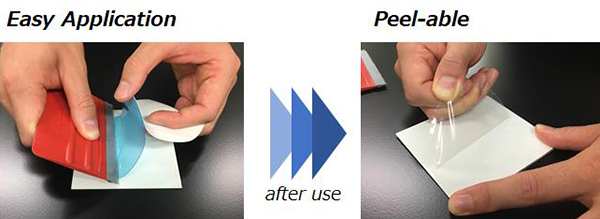

The final version of MARINGLIDE™ is an anti-biofouling adhesive film that took nearly ten years to develop. In a final field test, MARINGLIDE™ was applied to a PVC panel which was placed in the Mikawa Bay of Japan for six months. After the six months, the team retrieved the PVC panel and found it clear of any biofouling. MARINGLIDE™ was ready.
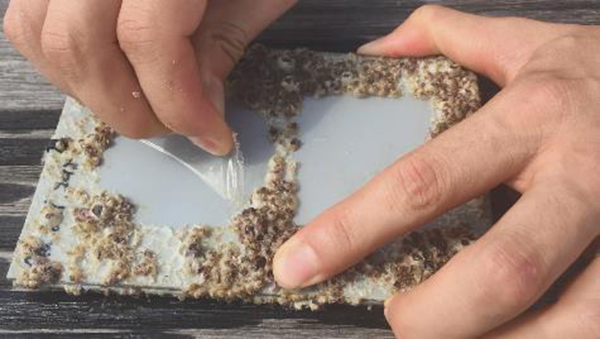

Removing MARINGLIDE™ from a PVC panel which had been placed in Mikawa Bay (Japan) for 6 months.
MARINGLIDE™ is an adhesive film with special layers that help prevent biofouling.
The anti-biofouling layer works by preventing organisms from attaching to the film by blocking the proteins those organisms use to adhere to surfaces. This removes the need of biocide substances, making it more sustainable solution for anti-biofouling.
It is also made with a pressure sensitive adhesive, so it is easy to apply to surfaces.
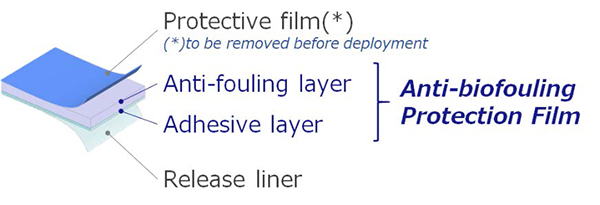

One of the first applications for MARINGLIDE™ was for the protection of high-end acoustic sensors (ADCP) deployed underwater. These sophisticated sensors could not be covered with anti-fouling paint, and had to undergo regular and costly maintenance to keep clean from biofouling. For these sensors, biofouling is a threat to accurate data measurement, potentially compromising the findings of researchers using ADCPs.
Nitto teamed up with Nortek, an innovative developer of ADCPs, to conduct a test of MARINGLIDE™’s effectiveness on ADCP transducers. These transducers are used to measure water velocities in the ocean using acoustic signals (by using the Doppler effect). When the ADCPs are deployed for several months the transducers can become obscured due to biofouling, which means the data can become inaccurate or incomplete. For this test, MARINGLIDE™ was placed over each of the Nortek transducers and was deployed for four months. When the ADCP was retrieved, the team found the transducers protected by MARINGLIDE™ were free of biofouling. During the deployment, the sensors were able to maintain their readings without impediments from organisms that would otherwise cause further challenges for the team.
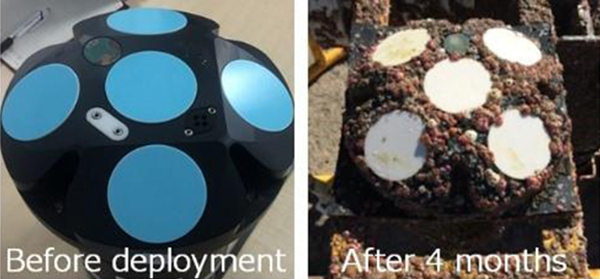

Nortek was pleased with the results, expressing that MARINGLIDE™ was the solution they had been looking for and would greatly contribute to oceanic research.
Oceans are one of the most mysterious places on Earth. And as we continue to explore its depths, we will encounter challenges in our research. In cases like this, Nitto will be there to help develop innovative solutions for both customers and the environment.
For more information about Nitto’s dedication to sustainability, visit: https://www.nitto.com/sustainability/.
Related links:
Anti-biofouling Protection Film: MARINGLIDE - Hydro-international (2020)
MARINGLIDE: Anti-biofouling Protection Film - Ocean New & Technology (2021)

